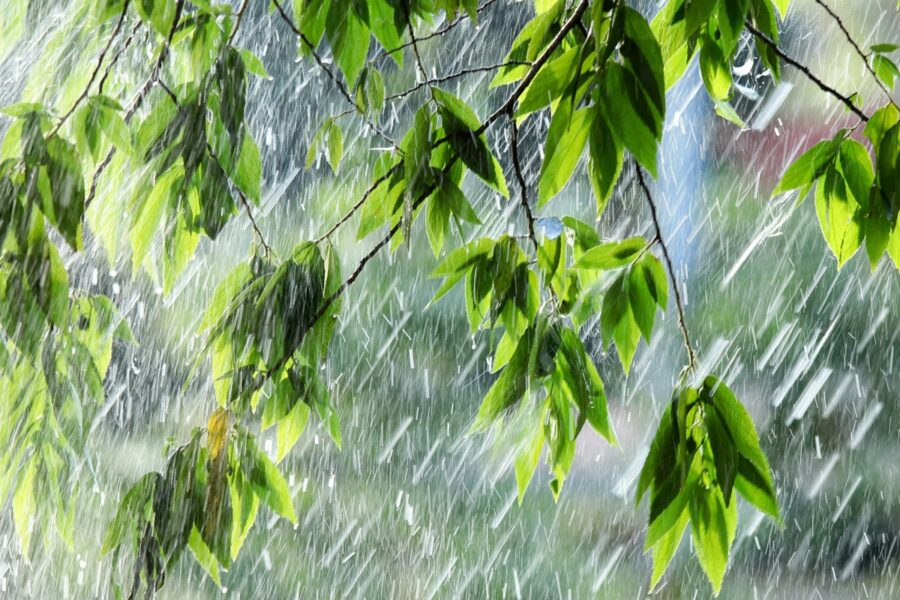Can Heavy Rain Cause Septic Smell?
When the skies open up and heavy rain pours down, it can have various effects on our surroundings. One peculiar phenomenon that many homeowners may have noticed is the emergence of a distinct septic smell during or after heavy rainfall. This article aims to explore the connection between heavy rain and the unpleasant odor emanating from septic systems.
Septic systems are underground wastewater treatment structures commonly used in rural areas where centralized sewer systems are not available. They consist of a septic tank and a drainfield, working together to treat and dispose of household wastewater. Under normal circumstances, these systems function efficiently and without any noticeable odor.
However, heavy rain can disrupt the delicate balance within septic systems, leading to the release of foul-smelling gases. The primary reason behind this phenomenon lies in the saturation of the drainfield due to excessive rainfall. When the soil becomes oversaturated, it hampers the proper absorption and filtration of wastewater, causing it to rise to the surface or back up into the septic tank.

As a result, the increased water level in the septic tank can disturb the anaerobic digestion process, where bacteria break down organic matter. This disturbance leads to the production of hydrogen sulfide gas, which is notorious for its pungent rotten egg smell. Moreover, the excess water can also push the gases present in the septic tank up through the plumbing system, permeating the household with an unpleasant odor.
It’s important to note that heavy rain alone may not directly cause septic system failure or damage. However, it can exacerbate existing issues or serve as a warning sign of potential problems within the system. Therefore, it is crucial for homeowners to be aware of the possible implications heavy rain can have on their septic systems and take appropriate measures to mitigate any unpleasant odors or prevent further complications.
In the following sections, we will delve deeper into the main factors contributing to septic smell during heavy rain and provide practical recommendations to address this issue effectively.
The Impact of Heavy Rain on Septic Systems
Heavy rain can have a significant impact on septic systems, potentially leading to the emergence of a foul septic smell. Understanding the underlying factors can help homeowners address the issue effectively and prevent any further complications.
1. Saturation of the Drainfield
One of the primary reasons heavy rain can cause septic smell is the saturation of the drainfield. The drainfield, also known as the leach field, is responsible for the final treatment and disposal of wastewater from the septic tank. It consists of a network of perforated pipes buried in the soil, allowing the treated wastewater to be absorbed and filtered.
During periods of heavy rainfall, the soil surrounding the drainfield becomes oversaturated with water. This excessive water content hampers the soil’s ability to absorb and filter the wastewater effectively. As a result, the wastewater may rise to the surface or flow back into the septic tank, disrupting the normal functioning of the system.
2. Disturbance of Anaerobic Digestion Process
Septic systems rely on anaerobic bacteria to break down organic matter in the septic tank. These bacteria thrive in an oxygen-deprived environment and play a crucial role in decomposing waste. However, when heavy rain causes the water level in the septic tank to rise, it can disturb the anaerobic digestion process.
The increased water level dilutes the concentration of bacteria and their digestive enzymes, slowing down the decomposition of organic matter. This disturbance can lead to the production of hydrogen sulfide gas, which has a distinct rotten egg smell. The gas can escape from the septic tank and permeate the plumbing system, resulting in the unpleasant septic odor inside the house.
3. Warning Sign of Existing Issues
While heavy rain alone may not cause septic system failure, it can serve as a warning sign of existing issues within the system. Excessive rainfall can exacerbate problems such as clogged drainfield pipes, a full septic tank, or a malfunctioning septic system. These issues can contribute to the release of foul-smelling gases and the septic odor becoming more noticeable during or after heavy rain.
It is essential for homeowners to pay attention to these warning signs and take appropriate action to prevent further complications. Ignoring the septic smell or neglecting necessary maintenance can lead to more significant problems, such as sewage backups, groundwater contamination, or damage to the septic system.
Conclusions
Heavy rain can indeed cause septic smell due to the saturation of the drainfield, disturbance of the anaerobic digestion process, and as a warning sign of existing issues. Homeowners should be proactive in addressing this problem to maintain the proper functioning of their septic systems and prevent any potential health hazards or environmental damage.
Regular septic system maintenance, including periodic inspections, pumping the septic tank as needed, and ensuring proper drainage around the drainfield, can help mitigate the impact of heavy rain. Additionally, consulting a professional septic system service provider can provide valuable guidance and assistance in resolving any septic system-related issues.
By staying vigilant and taking necessary precautions, homeowners can ensure the longevity and efficiency of their septic systems, minimizing the occurrence of septic smell even during heavy rainfall.
0 Comments